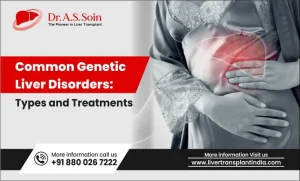Hepatitis B leads to liver inflammation. Hepatitis B virus is one of the five viruses that is responsible for this infection. Although it is an acute infection and cures with time, for some people, it develops into a chronic condition, thereby leading to severe long-term health complications.
Hepatitis B virus (HBV) infection can range from being asymptomatic to causing severe symptoms. Here are some common symptoms associated with HBV infection:
- Fatigue: Feeling unusually tired or weak is a common symptom of HBV infection.
- Jaundice: Yellowing of the skin and eyes due to liver dysfunction is a classic symptom of hepatitis B.
- Abdominal pain: Pain or discomfort in the abdominal region, particularly around the liver area, may occur.
- Loss of appetite: HBV infection can cause a decrease in appetite, leading to weight loss in some cases.
- Nausea and vomiting: Feeling nauseated or vomiting may occur, especially in the acute phase of the infection.
- Dark urine: Urine may appear dark or tea-colored due to the presence of bilirubin, a pigment produced by the liver.
- Pale stools: Stools may become pale or clay-colored due to the absence of bilirubin passing through the intestines.
- Joint pain: Some individuals with HBV infection may experience joint pain or arthritis-like symptoms.
- Fever: Low-grade fever is common in acute hepatitis B infection.
- Itchy skin: Pruritus, or itchy skin, can occur as a result of liver dysfunction.
It’s important to note that not everyone with HBV infection will experience symptoms, especially during the early stages. However, even without symptoms, HBV can still cause liver damage and lead to serious complications if left untreated. If you suspect you may have been exposed to HBV or are experiencing symptoms, it’s essential to see a healthcare provider for testing and appropriate management (added text)
In this article, you will learn about the causes, the most effective treatment approaches available for this infection, and the essential aftercare practices you need to follow for better results. So, check out this article right away!
Table of Contents
ToggleCauses of Hepatitis B
Mostly, this virus spreads through the medium of bodily fluids. Transmission of the HBV virus through body fluids can occur under the following circumstances:
Sexual contact
Sexual practice with an HBV-infected individual can lead to the transmission of the virus in the body. Hence, it is better to use protection tools such as condoms to prevent the spread of the virus. Also, getting your partner checked for HBV can help you stay safe from the infection.
Childbirth
Childbirth is a major cause behind the onset of this infection. The HBV virus present in the mother’s body can be transmitted to the infant through transplacental transmission in utero, natal transmission during delivery, or postnatal transmission through breastfeeding.
Open wound contact
Coming in contact with an open wound of a person infected with HBV can result in the transmission of the virus. Hence, wounds should be disinfected as soon as possible to prevent the future spread of the virus.
Improper hygiene practices
Improper hygiene practices at medical establishments can enhance the risk of HBV transmission. So, always visit clinics and hospitals where adequate hygiene measures are practiced for disease prevention.
Sharing of medical equipment
Sharing personal medical equipment, such as needles, syringes, razors, test kits, etc., can also increase the risk of developing Hepatitis B. So, ensure not to share such personal belongings with anybody else. If the person is affected by HBV, using the same tools will lead to the transmission of the virus.
Who is at the greater risk of developing Hepatitis B?
People belonging to the following groups are at greater risk of developing this infection:
HIV infected people
People infected with the HIV virus are always at a greater risk of developing this infection compared to those without HIV. Most people with HIV-positive results develop chronic Hepatitis.
People with Opioid use disorder
The consumption of intravenous drugs often results in the development of this infection in the body. People with an increased dependence on opioid drugs are at a major risk of developing this health condition.
People of African, Asian, or Pacific Island descent
Patients belonging to these areas of the world are always affected more because of the endemic nature of this virus compared to people of other origins.
Treatment options available
The treatment approaches available for HBV virus inflammation are as follows:
Prophylactic treatment
This treatment approach is effective for infants transmitted with the HBV virus before, during or after childbirth. This treatment includes the use of hepatitis B vaccinations designed to protect the infant from the impact of the virus and Hepatitis B immune globulin (HBIG). It is a natural antibody produced from human blood responsible for preventing the spread of the HBV virus in the blood.
Acute treatment
The Acute treatment approach is efficient in combating the HBV virus in its initial or acute stage. Although there are no specific medications designed to treat acute HBV infection since it gets cured on its own, the doctor may provide you with painkillers or IV fluids for supportive care on the intensification of your symptoms.
Chronic Hepatitis B treatment
Patients with chronic conditions will require either medical managment or surgical treatments (in view of liver cirrhosis with/without liver cancer). First, the doctor will leave you for surveillance for a brief period. During this period, frequent tests and checkups will be conducted to determine the extent of liver damage you have undergone due to the HBV infection. Based on the existing condition of your liver, the doctor will recommend either medications or surgical treatments:
Medication therapy
Usually oral antiviral drugs are used to treat patients with chronic hepatitis B. The tenure of the medication therapy may vary depending on the extent of the liver disease. Mostly the therapy is lifelong.
Surgical treatment:
In the patient with limited liver disease and localised cancer, surgical resection can be undertaken after through evaluation and staging of the disease.
Liver transplantation surgery
In the patients with decompensated liver cirrhosis/ liver failure or having high tumour (cancer) burden but limited to the liver, the liver transplantation surgery is conducted and the diseased liver is replaced with healthy donor liver. The liver transplantation surgery is done only if you develop further complications such as cirrhosis and liver failure or liver cancer. Dr. A.S. Soin is an incredibly proficient liver transplantation surgeon you can refer to.
The Aftercare Guide
Following the below-mentioned care guidelines will efficiently speed up your recovery:
Say no to alcohol and smoking
Taking good care of your liver post-treatment is utterly essential. Hence, completely avoid consuming alcohol or smoking since they can pose a serious threat to your overall health.
Consume a healthy diet
Consuming a healthy diet post-treatment can help you stay physically active and strong. Avoid consuming a lot of carbohydrates and fats. Instead, switch to proteins and vitamins. So, include a lot of green vegetables and fresh fruits into your diet. Also, you can try out healthy fats in limited quantities.
Stay under your doctor’s supervision
Staying under your doctor’s supervision after treatment will help you keep your health checked. Staying unattended after treatment can boost the chances of getting infected with HBV once again. So, staying under the supervision of a renowned medical professional will eliminate the further risks of developing the infection once again.
Conclusion
The most popular diagnostic tests available for this infection are blood testing, liver ultrasound, and liver biopsy and tumour markers (especially AFP) for the early detection of liver cancer. Once you are diagnosed with hepatitis B, leaving it unattended will undoubtedly be a grave mistake. Visit a renowned doctor to get the best treatment.
You can reach out to Dr. A.S. Soin. He is a highly affiliated surgeon specialising in liver transplantation and hepatobiliary surgery. Seek his medical guidance for effective cure and management of HBV at the earliest.








